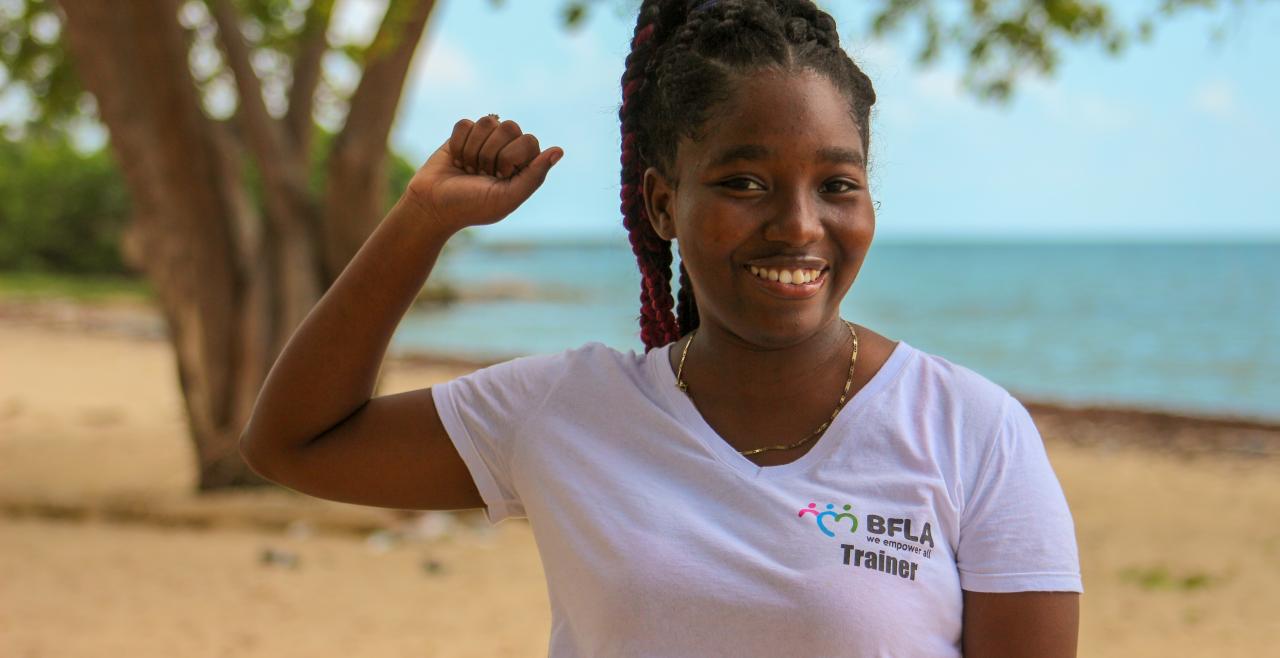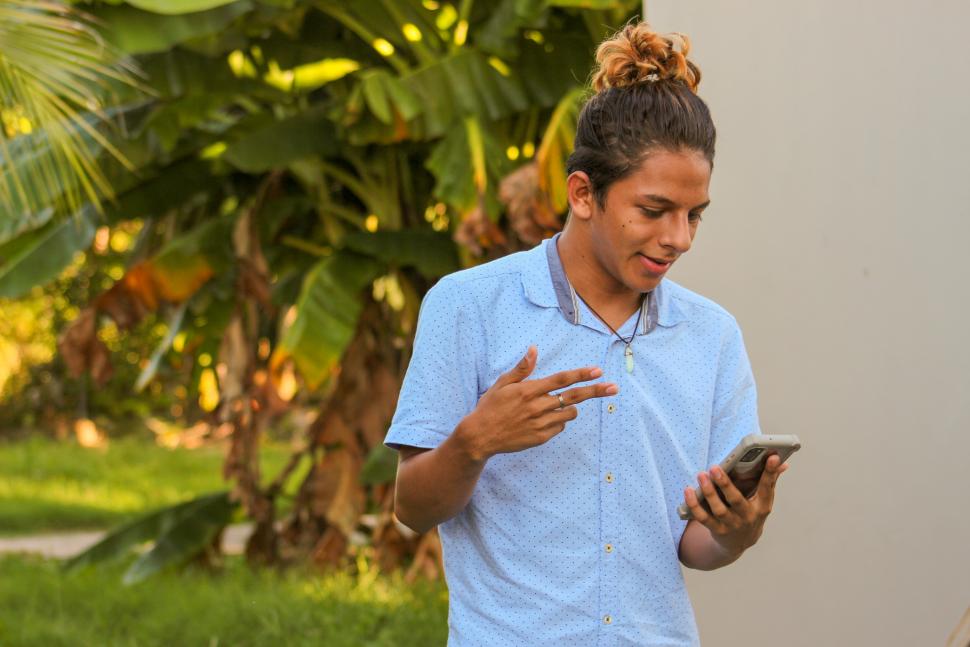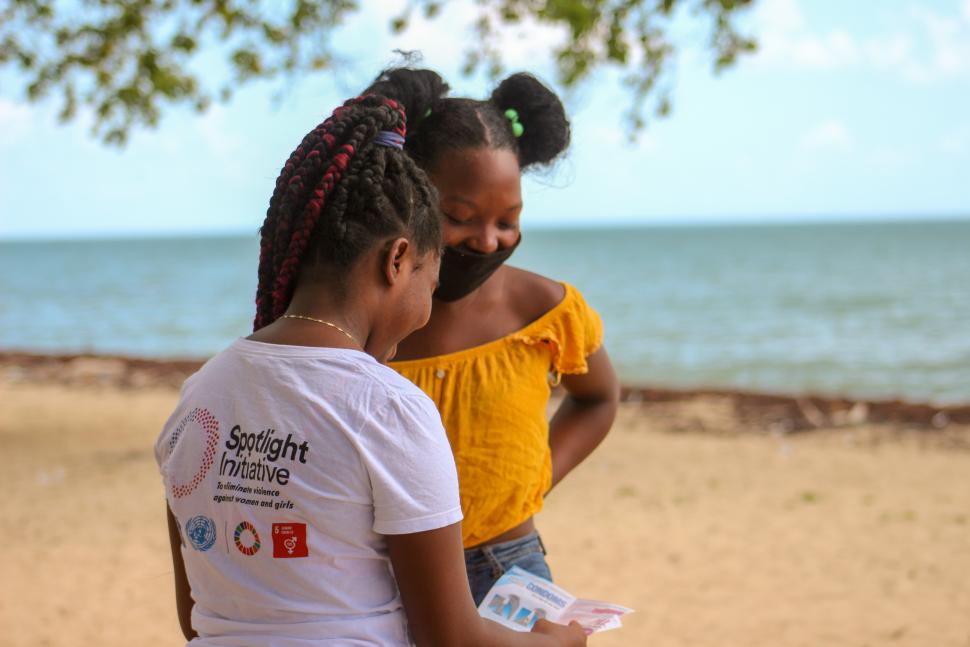Youth taking the lead on navigating comprehensive sexuality education in Belize

DANGRIGA, Belize - In Belize, 11 per cent of adolescent girls aged 15-19 has had a baby, while the average age for sexual activity amongst youth is 16 years old. Findings show that 96 per cent of people diagnosed with STIs in Belize were between the ages of 15-19.[1] Teen mothers are more likely to drop out of school, live in poor housing conditions, or be unemployed or in low-paid employment.
“People as young as 13 years old are engaging in sex,” says Anthonisha Gabriel, 20, a youth advocate from Dangriga Town in southern Belize, who is part of the Youth Advocacy Movement (YAM) under the Belize Family Life Association (BFLA). BFLA is a civil society organization that is providing comprehensive sexuality education (CSE) training to community-level peer educators supported by the Spotlight Initiative. The CSE training aims to assist youth in Belize by empowering them to make informed decisions about relationships, sexuality and how to navigate a world where gender-based violence, gender inequality, child marriage & early unions, adolescent pregnancies, HIV and other sexually transmitted infections (STIs) still pose serious risks to their health and well-being.
Educating and Empowering young girls
Anthonisha was invited to the training by her youth leader, and she notes that she wanted to get involved because as a young community leader, she sees many young people who have early and unintended pregnancies, contract STIs or who don’t know how to engage in safe sex. Additionally, Anthonisha says that public services are often inaccessible or not confidential. As a community-level peer educator, she can advise and refer youth in her community to BFLA for services.
"I educate young girls on how to protect themselves and encourage them to always have protection with them." - Anthonisha Gabriel, Community-level Peer Educator in Dangriga
“Most times sexuality education in schools don’t tell you the common symptoms of STIs or are still teaching young people about ‘safe days’[2] to avoid pregnancies,” says Anthonisha. She continues by saying, “some young people also feel intimidated to ask their parents or are given the wrong information at home. This is why, as a young trainer, I educate young girls on how to protect themselves and encourage them to always have protection with them.”
An Inclusive Approach to Sexual Education
Alek Armstrong, 18, is a community-level peer educator in Belize City who saw a Facebook post and signed up to be an educator says. “A lot of young men ignore the fact that they can do something and forget that they also need to take responsibility and protect themselves,” says Alek. As a gay young person, he feels that “STDs, HIV and AIDS are often stigmatized to the LGBTQ community.” He states that the CSE training is “inclusive and open to everyone and addressed sexuality education for all genders and orientations, which is not what we get in school.”
"CSE training is inclusive and open to everyone and addressed sexual education for all genders and orientations." - Alek Armstrong, Community-level Peer Educator in Belize City
A total of 65 community-level peer educators like Anthonisha and Alek have been trained as master trainers in Comprehensive Sexuality Education (CSE). Anthonisha has trained her sisters, family members and her friends, and she notes that she feels elated that her peers see her as a role model and are comfortable coming to her with questions or confiding in her about their sexual and reproductive health.
"Although it gets a bit overwhelming because I have my responsibilities, I always find the time to talk to anyone that has questions for me,” says Anthonisha.
Alek says that he has been able to use this training to inform his peers of their options and he added how reassuring it is to see his peers use the information. All peer educators, who have been provided with CSE tool kits, have delivered training to a total of 257 out-of-school young persons in Belize.
By Perla Hinojosa
[1] Ministry of Health (2019). Adolescent Health Strategy. https://www.unicef.org/belize/adolescent-health [2] Days that are believed to be safe for having unprotected sex without resulting in pregnancy, based on the woman's menstrual cycle.


